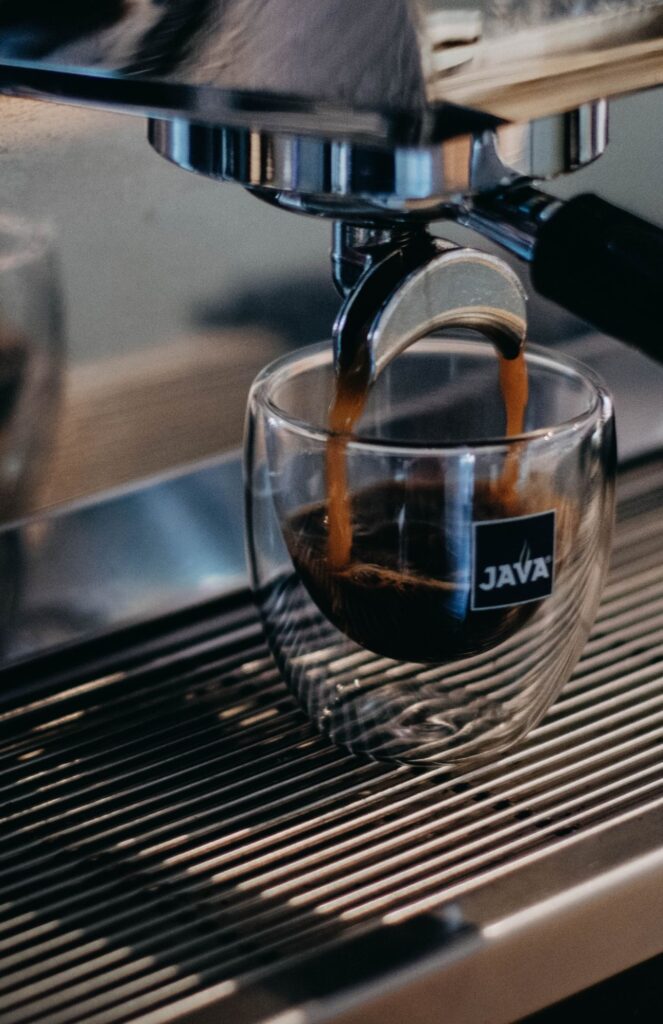The Surprising Truth: Does Espresso Keep You Awake?
Last Updated on October 2, 2023 by Dr. Tiffany Egan
Coffee lovers around the world rely on espresso for its reputation as a legendary eye-opener with high caffeine content, myself included! But does espresso keep you awake? And is it a healthy choice for boosting energy levels?
In this comprehensive guide, we’ll delve into the science behind espresso, its caffeine content, and its effects on wakefulness. So, grab a cup of your favorite brew and let’s explore the truth behind the energy boost!
Table of Contents
What Makes Espresso an Energy Booster?
Espresso is known for its high caffeine content, which is responsible for the energy surge experienced after consuming it. Caffeine is a stimulant that affects the central nervous system in complex ways.
When consumed, caffeine molecules attach to adenosine receptors in the brain, preventing sleep molecules from doing their job. This results in increased alertness and a temporary boost in energy levels.
Additionally, caffeinated drinks like espresso stimulate the production of dopamine, adrenaline, and serotonin, which are neurotransmitters that contribute to feelings of pleasure, increased heart rate, and improved focus.
These chemical reactions in the brain can enhance memory, concentration, and metabolic regulation.
However, it’s important to note that relying solely on espresso for energy may not be a sustainable solution. Over time, the brain may develop more receptors to catch sleep molecules, leading to a higher tolerance for caffeine.
This can result in the need for increased caffeine consumption to achieve the same energy boost. Therefore, moderation is key when it comes to consuming espresso for wakefulness.

The Caffeine Content of Espresso: How Much is Enough?
Espresso is known for its concentrated form, which contributes to its higher caffeine content per ounce compared to other coffee drinks.
A single shot of espresso, typically 1 ounce (30ml), contains approximately 63 milligrams of caffeine.
This amount of caffeine can vary slightly depending on factors such as the type of coffee beans used and the brewing process.
To put it into perspective, an 8-ounce regular cup of coffee contains around 95 milligrams of caffeine.
While the caffeine content per serving of espresso is lower than a standard cup of coffee, the concentration of caffeine in espresso makes it a potent energy booster.
It’s worth noting that individual caffeine tolerance can vary based on factors such as metabolism and frequency of caffeine consumption.
For most individuals, consuming two to three espresso shots is sufficient to experience an energy boost. This amount falls within the caffeine range that wakes most people up without causing overstimulation.
However, it’s important to listen to your body and adjust your espresso intake based on your personal tolerance and energy needs.
The Timely Effects of Espresso: When Does It Kick In?
You’ve ordered your favorite espresso shot, but how long does it take for the stimulating effects to kick in?
The effects of caffeine in espresso, as well as other caffeinated beverages, typically reach their peak within 30 to 60 minutes after consumption. This time-frame can vary depending on factors such as individual metabolism, food intake, and additives in the espresso.
Metabolism plays a significant role in how quickly your body processes caffeine. Some individuals naturally metabolize caffeine faster than others, resulting in a quicker onset of its effects.
Consuming espresso on an empty stomach can also lead to faster absorption and a more rapid energy boost. However, it’s important to strike a balance, as drinking coffee on an empty stomach may cause discomfort or jitters.
Additionally, the composition of your espresso-based drink can influence the time it takes for caffeine to take effect. Milk-based espresso drinks, such as lattes or cappuccinos, may be consumed more slowly than a straight espresso shot.
This can delay the onset of caffeine’s effects. However, adding sugar or syrups to your espresso drink can provide a quick energy boost due to the mild stimulant effect of sugar.

The Duration of Espresso’s Energy Boost: How Long Does Espresso Keep You Awake?
While espresso can provide an initial energy boost, its effects are not indefinite. The power of espresso starts to wear off after approximately one hour and will be mostly gone within five hours. This is due to the body’s metabolism of caffeine.
Research indicates that the half-life of caffeine is around five hours. This means that it takes five hours for the human body to eliminate half of the caffeine consumed.
A double shot of espresso with approximately 140 milligrams of caffeine will result in around 70 milligrams remaining in your system after five hours. This amount is below the threshold of 100-200 milligrams typically needed to increase energy levels.
As the effects of espresso wear off, it becomes more challenging to stay alert, and the desire to fall asleep may resurface. To maintain wakefulness throughout the day, one would need to consume multiple espressos every two to three hours to obtain more caffeine.
However, too much caffeine can lead to negative side effects and potential fatigue. Therefore, it’s crucial to prioritize getting a good night’s sleep rather than relying solely on espresso for wakefulness.
Espresso vs. Regular Coffee: What Sets Them Apart?
Espresso and regular coffee differ in various aspects, including their caffeine content and brewing methods. Espresso is highly concentrated, with a higher caffeine content per ounce compared to regular coffee.
While a single shot of espresso contains around 63 mg of caffeine, an 8-ounce cup of coffee typically contains approximately 95 milligrams.
The brewing process also differs between espresso and regular coffee. Espresso is made using an espresso machine that forces hot water through finely ground coffee beans at high pressure. This extraction method results in a rich, concentrated, and full-bodied coffee with a distinct flavor profile.
Regular coffee, on the other hand, is brewed using methods such as drip brewing, French press, or pour-over, resulting in a larger volume of coffee with a milder taste.
So, how does espresso keep you awake? Despite its higher caffeine content, espresso is not necessarily more potent than regular coffee in terms of wakefulness. There is less caffeine per serving in espresso, but its concentration makes it a more potent energy booster.
Ultimately, the choice between espresso and regular brewed coffee depends on personal preference, desired taste, and caffeine requirements.
The Health Considerations of Consuming Espresso
Espresso, like any caffeinated beverage, has potential health benefits and drawbacks. In moderation, espresso can provide an energy boost, improve focus and concentration, and potentially enhance cognitive performance in the average adult.
Some studies suggest that espresso’s antioxidant properties may contribute to overall health and reduce the risk of certain diseases.
However, the best option is to consume espresso in moderation and be aware of your caffeine tolerance. Excessive caffeine consumption can lead to negative effects such as increased heart rate, restlessness, anxiety, and insomnia.
It’s recommended to limit espresso consumption to six shots or four cups of coffee per day to reap the benefits without risking side effects.
Additionally, pregnant women, individuals with certain medical conditions, or those taking specific medications should consult their healthcare provider before consuming espresso.
It’s a good idea to stay away from energy drinks, as tempting as they may be when you’re exhausted!

Natural Ways to Boost Energy
- Get more sleep: Lack of sleep can contribute to fatigue. Aim for 7-9 hours of quality sleep each night to feel more energized throughout the day. Try a relaxing soak in the bathtub with Magnesium Flakes or Epsom Salts before bed!
- Stay hydrated: Dehydration can cause feelings of fatigue. Drink enough water throughout the day to stay properly hydrated.
- Exercise regularly: Physical activity can increase energy levels and reduce fatigue. Aim for at least 30 minutes of moderate exercise most days of the week.
- Eat a balanced diet: Include whole grains, fruits, vegetables, and lean proteins in your meals. These provide essential nutrients and help sustain energy levels.
- Manage stress: High levels of stress can drain your energy. Practice stress-reducing techniques like meditation, deep breathing, or engaging in hobbies to help boost energy.
- Address underlying health conditions: Fatigue can be a symptom of various health conditions. Consult with a healthcare professional to address any underlying health issues that may be contributing to your lack of energy.
Finding the Right Balance: Incorporating Espresso into Your Daily Routine
While espresso can provide a quick energy boost, it’s important to strike a balance and consider your overall lifestyle and sleep patterns. Relying solely on espresso for wakefulness may not be a sustainable solution, and prioritizing healthy sleep habits is crucial for overall well-being.
If you enjoy the taste and effects of espresso, incorporating it into your daily routine in moderation can help enhance your productivity and focus. However, it’s essential to listen to your body, be mindful of your caffeine intake, and adjust accordingly based on your individual tolerance and energy needs.
Remember, espresso is just one tool in your arsenal for staying awake and alert. The best way is to prioritize a balanced lifestyle, including regular exercise, a nutritious diet, and quality sleep, to maintain optimal energy levels throughout the day.
How long will one shot of espresso keep you awake?
One shot of espresso can keep you awake for about 5-6 hours. The half-life of caffeine in the body is approximately 5-6 hours, meaning that it takes this amount of time for the caffeine levels to decrease by half. However, it’s important to note that caffeine can stay in the body for up to 8 hours or longer, depending on factors such as metabolism. While the caffeine from an espresso shot may remain in your system for several hours, the noticeable effects typically only last for a few hours. It’s advisable to avoid consuming espresso at least 6 hours before bedtime to prevent interference with sleep.
Will an espresso shot keep me up all night?
No, an espresso shot will not keep you up all night. The effects of caffeine in one shot of espresso can last for about 5-6 hours due to the half-life of caffeine in the body. However, it is recommended to avoid consuming espresso at least 6 hours before bedtime to prevent interference with sleep. While espresso is stronger than other types of coffee due to its higher concentration of caffeine, drinking it before bed may not be a good idea. It is important to consider your own caffeine sensitivity and adjust your consumption accordingly.
Is it bad to have espresso before bed?
According to a study, consuming caffeine, such as espresso, up to six hours before bed can significantly reduce the quality and quantity of sleep, leading to disrupted sleep. Therefore, it is advised to avoid consuming espresso close to bedtime. However, the half-life of caffeine in the body is about 5-6 hours, so one shot of espresso may keep a person awake for that long. It is important to consider individual caffeine sensitivity and adjust consumption accordingly. Drinking moderate amounts of coffee regularly may have positive effects on the cardiovascular system and digestion, as indicated by studies.
How many shots of espresso will keep you awake?
The number of shots of espresso required to keep someone awake can vary depending on individual caffeine sensitivity. On average, it takes about two to three shots of espresso, or 100-200 milligrams of caffeine, to wake up the average person. However, it’s important to note that caffeine can stay in the system for about 4-7 hours. While a single shot of espresso may not be as powerful as a regular cup of coffee, a double shot contains approximately 140mg of caffeine and can certainly help in staying awake. Nevertheless, it is recommended to avoid consuming espresso at least 6 hours before bedtime to prevent interference with sleep.
Conclusion: The Verdict on Espresso and Wakefulness
In conclusion, espresso does have the potential to keep you awake and provide an energy boost due to its high caffeine content. Consuming two to three shots of espresso is generally sufficient for most individuals to experience increased alertness and focus.
However, individual caffeine tolerance can vary, and it’s essential to listen to your body’s cues and adjust your espresso intake accordingly.
While espresso can be a valuable tool for enhancing wakefulness, it’s important to remember that long-term reliance on caffeine for energy may not be sustainable.
Prioritizing healthy sleep habits, maintaining a balanced lifestyle, and using espresso in moderation can contribute to overall well-being and sustained wakefulness throughout the day.
So, the next time you reach for that shot of espresso, savor the moment and enjoy the temporary energy boost it provides. Just remember to find the right balance and prioritize a holistic approach to maintaining wakefulness and overall vitality.


One Comment
Comments are closed.